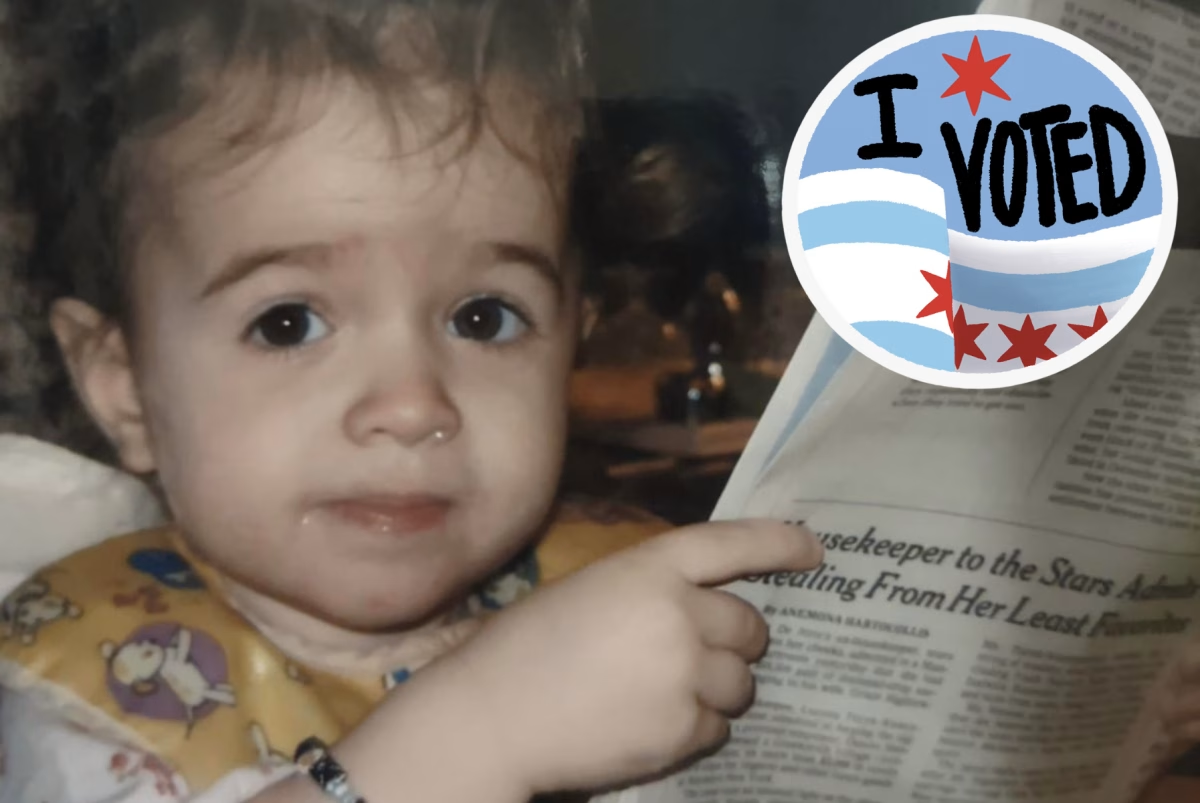As a first-time presidential voter, I feel as if I’m caught in a whirlwind of an election in which to participate. I’ve voted in local elections, but nothing has compared to the feeling of receiving my New York absentee ballot to vote for the president of the United States.
Past elections have brought about similar feelings of anxiety, with the 2020 election being at the peak of Covid-19 restrictions for New Yorkers. As a 17-year-old, I will never forget the day Joe Biden officially won the presidency.
I can’t say exactly what it meant to me at that time. I was an educated 17-year-old with politically active parents, living in a city where I constantly saw political activism of all forms, but all I felt at the time was a shallow sense of relief, not quite sure of the implications of a Biden presidency.
Not only have I changed drastically in the last four years, but so has the American political system. I am no longer finishing my last year of high school on Zoom in my bedroom. I am now a senior in college, majoring in political science and journalism. To say that I have both a deeper and more personal understanding of this election would be an understatement.
My job as a student journalist and as an aspiring professional is to stay as informed as possible about this election, and then in turn, to write about it.
The thought of a restriction on the press never occurred to me in 2020. Now it’s a recurring thought I ruminate on while imagining another possible Trump presidency and considering my future career in journalism.
Sure, I felt a personal connection when I was in eighth grade and saw the leaked video of Trump bragging about taking advantage of women. Now I observe the disgust many women voters feel when hearing the way he speaks about Vice President Kamala Harris during his rallies.
But something about researching Trump eight years later — and seeing him repeatedly call journalists “among the worst people” he’s ever met — makes me feel a different kind of fear. Along with the constant barrage of accusations of fake news and dishonesty, it’s clear how Trump feels about the media.
Even though my time as a student journalist is not comparable to a lifelong experience in the field, working with the DePaulia has shown me how necessary journalism is to our democracy.
I have had the opportunity to meet many Chicago-based journalists over the years, and the conclusions I have reached about their character are centered around their hard work, which seeks to improve the community. I don’t think that means they can be the “worst people” you’ve ever met.
But they do struggle with the almost decade-long experience of covering Trump, the politician. I’ve heard reporters say this is the first time a candidate has told actual lies to the press without restraint.
I also couldn’t speak about the character of journalists without mentioning that I was raised by a journalist. My father, who I often brag about as the most gentle, kind man in the world, was my first example of a respectful, hardworking journalist. I have seen those traits reiterated in almost everyone else I talk to in the field.
A recent survey of hundreds of journalists who received safety training from the International Women’s Media Foundation found that 36% of those surveyed have been threatened with physical violence.
These reporters said they have felt especially threatened at Trump campaign rallies, according to NPR.
Trump has repeatedly threatened to shut down networks like CBS due to segments like Vice President Harris’ appearance on “60 Minutes.”
But Harris has faced criticism for not being accessible to members of the press since entering the race over the summer.
Even if these threats are grounded in reality or not, the very utterance of this from a presidential candidate’s mouth evokes a fear in me that I haven’t felt the magnitude of in previous elections.
The targeting of journalists isn’t isolated to American soil.
Even though I may express my fear about what a Trump presidency would mean for the free press, my mind then goes to the significant number of journalists who have been killed as the war in Gaza continues.
As of Oct. 25, 131 journalists and media workers have been killed in Gaza, the West Bank, Israel, and Lebanon. The Committee to Protect Journalists calls it the “deadliest period for journalists” since their organization started in 1992.
Latest reports show an Israeli airstrike killed three sleeping journalists who were covering the war in Lebanon.
There already appears to be a lack of attention placed on the concerning number of journalists being killed in the Middle East, and I fear what a continuation of the spew of anti-media lies would mean for the journalists overseas.
I honor the journalists both in America and the Middle East, who continue to do their important work despite very real threats to their lives.
As the days before Nov. 5 dwindle, I am unsure of how this election will end. But I do know that journalists — students or professionals — will be there covering it no matter the outcome.
Related Stories:
Support Student Journalism!
The DePaulia is DePaul University’s award-winning, editorially independent student newspaper. Since 1923, student journalists have produced high-quality, on-the-ground reporting that informs our campus and city.
We rely on reader support to keep doing what we do. Donations are tax deductible through DePaul's giving page.

